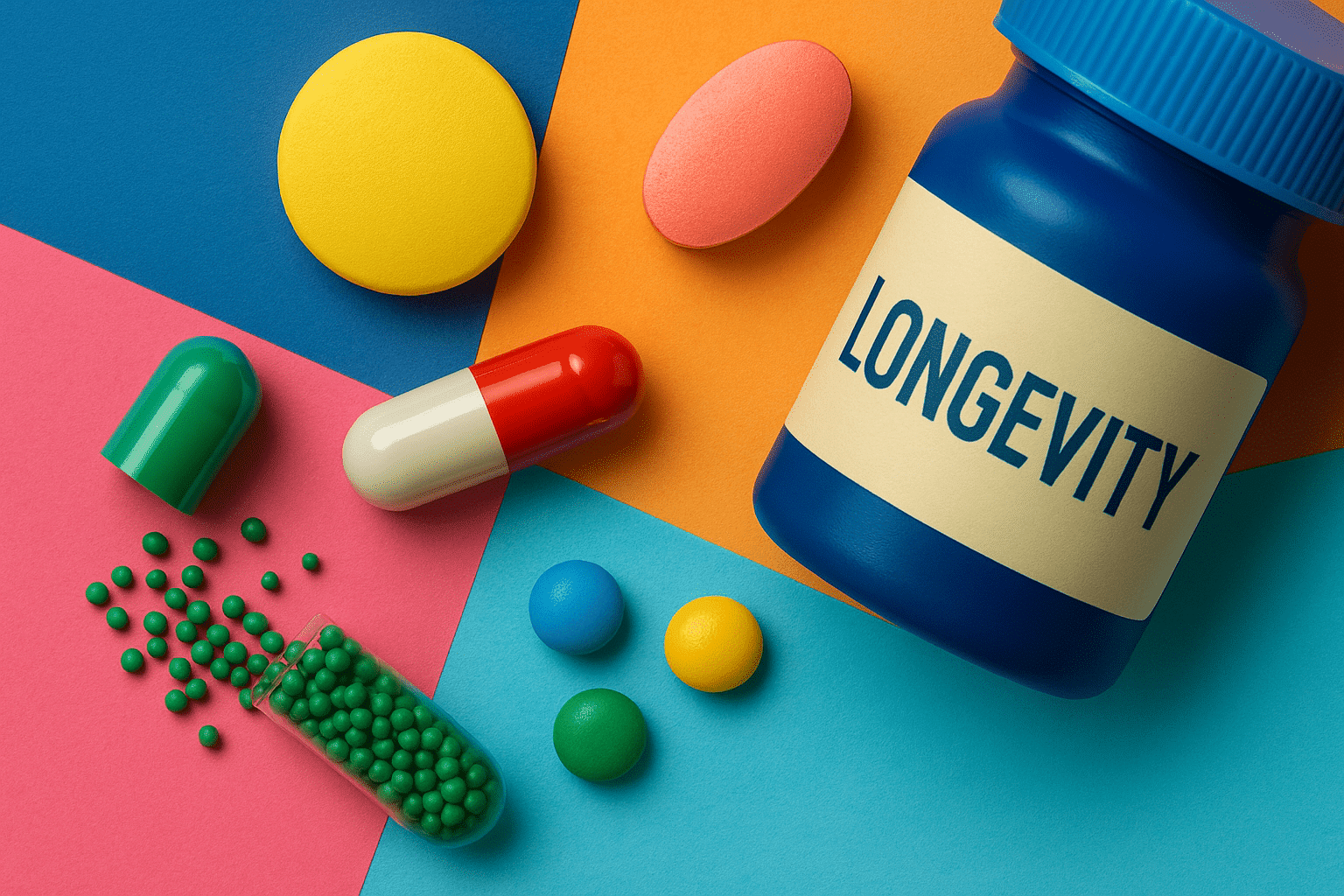The reinsurer Swiss Re has published guidelines for longevity drugs for the first time. The guidelines concern active ingredients such as metformin and rapamycin. These are substances with a medical history that are now being traded as possible keys to a longer life.
Pills against ageing: what long sounded like science fiction is now entering the medical and financial mainstream. With its guidelines on longevity drugs, Swiss Re is entering a debate that extends far beyond research laboratories. It is about opportunities, risks and the question of whether we are ready to regulate the business of time.
From therapy to the anti-ageing trend
Metformin was originally developed for the treatment of type 2 diabetes. Today, the active ingredient is seen as a beacon of hope in the fight against age-related diseases. Researchers are investigating whether it can slow down the ageing process by improving insulin sensitivity, reducing inflammation and having positive effects on the metabolism, among other things.
Rapamycin, in turn, has its origins in transplant medicine. As an immunosuppressant, it was intended to prevent rejection reactions. In animal experiments, however, the active ingredient has also shown that it can extend lifespan. It is thought to influence the mTOR signaling pathway, which is crucial for cell growth and ageing.
What falls under “longevity drugs”
The term covers a growing range of substances that are being tested for their anti-ageing effect either in basic research or in clinical trials. In addition to metformin and rapamycin, these include:
- NAD⁺ precursors such as nicotinamide mononucleotide (NMN) or nicotinamide riboside, which are intended to support cellular energy production.
- Senolytics, which could specifically break down senescent cells and thus reduce inflammation.
- Sirtuin activators such as resveratrol, a substance that is found in red wine and plays a role in the regulation of ageing processes in studies.
Many of these preparations are still at the experimental stage. Nevertheless, they are already being prescribed by doctors, often off-label, or obtained via the gray market.
Billion-dollar market with many unknowns
Research into longevity medicine has developed rapidly over the past ten years. Venture capital is flowing into start-ups pursuing anti-ageing strategies, and large pharmaceutical companies are beginning to systematically occupy the field. According to estimates, the market for longevity therapies could reach a volume of several hundred billion dollars by 2030.
At the same time, experts warn against premature hopes: Most active ingredients have not yet been approved for anti-ageing use. There is a lack of long-term data on safety, efficacy and side effects.
Swiss Res Motivation
With the new guidelines, Swiss Re aims to create a uniform framework for assessing the medical and underwriting risk of such preparations. For insurers, the question is not only whether these drugs actually prolong life, but also whether they could harbor new health risks, and how both of these affect premiums and benefit models.
“The more popular these substances become, the more important it is to realistically assess their impact on health, life expectancy and costs,” says a Swiss Re spokesperson.
Social and ethical issues
If longevity drugs really do work, the question of access arises: will they become a lifestyle product for the wealthy, or a health insurance-financed preventive measure for everyone? Unequal distribution could exacerbate existing social differences: Those who can afford it stay healthy and productive for longer. Those who cannot, age faster. In addition, ethicists warn that a massive extension of life would not only have individual but also social consequences. From pension systems and labor markets to questions about the meaning and quality of a very long life.
What are longevity drugs?
Longevity drugs, often referred to as “longevity drugs”, are substances that are intended to slow down biological ageing or delay age-related diseases. They differ from traditional drugs in that they do not primarily treat an acute illness, but have a preventive effect. Research focuses on mechanisms such as
- Cell protection (e.g. antioxidant effects)
- Delaying cell ageing (senescence)
- Optimization of the metabolism
- Modulation of inflammatory processes
Whether this will actually become a reliable path to a longer, healthier life remains to be seen.
Binci Heeb
Read also: ‘Long and healthy life’: Interview with Dr. Yael Benvenisti





